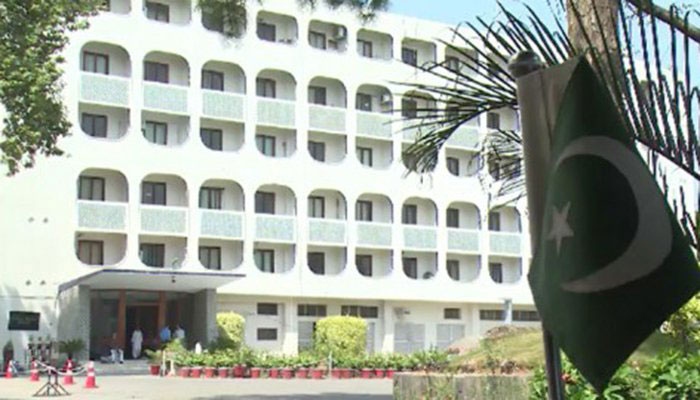Pakistan concerned over occupied Kashmir situation during coronavirus pandemic
April 09, 2020

Pakistan has expressed sheer concern over the lack of medical supplies for Indian occupied Kashmir during the coronavirus pandemic, as the valley continued to face human rights violation and lockdown, Radio Pakistan reported on Thursday.
According to Foreign Office Spokesperson Ayesha Farooqui, so far 170 coronavirus cases have been reported in the occupied valley and five people have passed away from the virus.
The FO spokesperson said six international human rights organizations have demanded the release of the arrested Kashmiris during the time of the coronavirus outbreak.
Outrightly rejecting Indian claims of Pakistan’s alleged involvement in a recent terror attack on a Gurdwara in Kabul, she said that Pakistan has fought valiantly against terrorism, including ‘state-sponsored terrorism’ from across the border.
“We are very well aware of India's continuous smear campaign against us but are confident that these tactics will not succeed in misleading the world community,” she was quoted as saying.
The FO spokesperson strongly condemned Indian efforts to change the demographics of the Indian occupied valley, saying that it was against international law and the resolutions of the United Nations Security Council.
Earlier on Thursday, Pakistan had condemned and rejected the introduction of "Jammu and Kashmir Reorganisation Order 2020” which it termed as an attempt to illegally change the demographic structure of IoK.
"This is a clear violation of international law, including the 4th Geneva Convention," said the FO spokesperson. The official added that the Indian action was a continuation of India’s illegal and unilateral steps since August 5, 2019.
The Indian government on Wednesday announced a new set of laws for the disputed territory that grants domicile rights to Indian citizens in the region — a move sparking fear that it will alter the demographic status of the Muslim dominated territory.
The announcement came nearly eight months after the Indian government stripped the region of its limited autonomy that had protected the region for decades from demographic changes.











